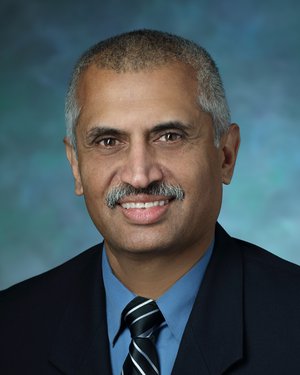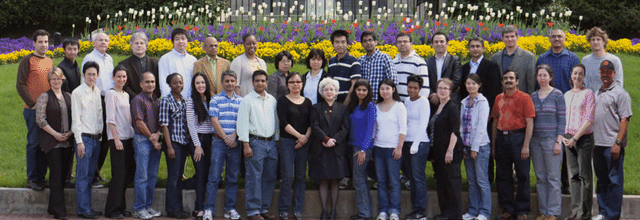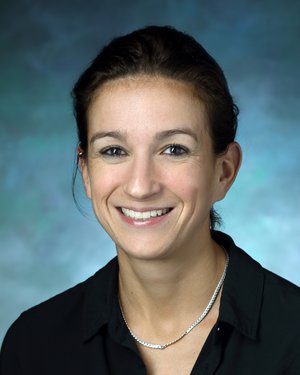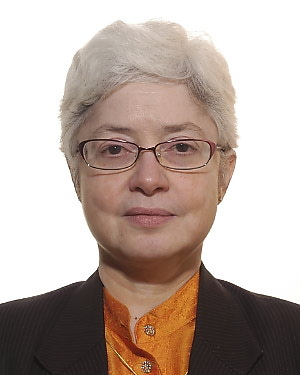The Division of Cancer Imaging Research promotes preclinical and clinical multi-modal imaging applications to understand and effectively treat cancer. The team’s work is dedicated to the applications of molecular imaging to understand and target cancer and the tumor environment.
The Division of Cancer Imaging Research
Dr. Zaver Bhujwalla provides an overview of the The Division of Cancer Imaging Research within the Department of Radiology and Radiological Science. The overall mission of the division is to promote preclinical and clinical multi-modal imaging applications to understand and effectively treat cancer.
About Us
-
The division operates the MRB Molecular Imaging Service Center, supporting molecular imaging research across the Johns Hopkins Medical Institution. A simultaneous PET-MR research scanner was installed in March 2019 to expand molecular imaging research capabilities at Johns Hopkins.
The division will also operate a newly created mass spectrometry imaging service center from 2019.
-
The division housed the NIH funded P50 JHU In-vivo Cellular and Molecular Imaging Center (ICMIC) Program from 2002 to 2017.
-
Clinical applications include the development of novel imaging-based biomarkers to detect and stage cancer and monitor response totreatment. A major focus of the division is in nanotechnology to develop nanoparticles as theranostic tools. Nanoparticles have been developed to deliver siRNA, cDNA and a prodrug enzyme to tumors under image-guidance. Click-chemistry based nanoparticles are being designed for tumor-specific treatment.
More recently, biomimetic nanoparticles that are coated in cancer cell membranes are being developed as decoys to disrupt stromal cell-cancer cell interactions, and to induce an immune response. Antibody-based phototherapy approaches are also being developed to specifically target cancer cells and stromal cells.
-
The Division of Cancer Imaging Research offers one- to three-year pre-doctoral or postdoctoral fellowship training in a range of disciplines, such as molecular biology, probe chemistry, computational analysis and multimodality imaging, all of which are required in the molecular and functional imaging efforts of faculty members.
For more information, contact Laura Neuberger at [email protected] or 410-502-0174.
Zaver M. Bhujwalla, Ph.D.
Director and Professor
Dmitri Artemov, Ph.D.
Professor
Elena Artemova, Ph.D.
Budget Analyst
James Barnett
Ph.D. Student
Akanksha Bhargava, Ph.D.
Postdoctoral Fellow
Zhihang Chen, Ph.D.
Research Associate
Gary Cromwell
Laboratory Coordinator
Kristine Glunde, Ph.D.
Professor
Sudath Hapuarachchige, Ph.D., M.S.
Assistant Professor
Mickell Holt
Sr. Administrative Coordinator
Jiefu Jin, Ph.D.
Research Associate
Yoshi Kato, Ph.D.
Visiting Assistant Professor
Puneet Khandelwal, Ph.D.
Postdoctoral Fellow
Balaji Krishnamachary, Ph.D.
Assistant Professor
Yelena Mironchik
Research Specialist
Noriko Mori, Ph.D.
Research Associate
Laura Neuberger
Administrative Manager
Arvind P. Pathak, Ph.D.
Professor
Marie-France Penet, Ph.D.
Assistant Professor
Venu Raman, Ph.D.
Professor
Janaka Senrathna, Ph.D.
Postdoctoral Fellow
Raj Kumar Sharma
Research Associate
Shanshan Tan, Ph.D.
Postdoctoral Fellow
Caitlin Tressler, Ph.D.
Research Associate
Farhad Vesuna, Ph.D.
Instructor
Paul T. Winnard, Ph.D.
Research Associate
Xiaogu Yang, Ph.D.
Research Technologist
Our Research
Division faculty pursue a broad spectrum of multimodality molecular and functional imaging research that spans basic research to preclinical and clinical applications. Cancers investigated include breast, prostate, pancreatic, brain and ovarian cancer. Research focus areas include understanding and targeting the tumor microenvironment and cancer induced cachexia and developing theranostic imaging for precision medicine. Novel targets and pathways such as DDX3, COX-2, enzymes in choline metabolism, and hypoxia targeting are being investigated with molecular and functional imaging to understand cancer and develop effective image-guided treatments. Novel advances are being made in mass spectrometry imaging, as well as microscopic imaging of tumor vasculature.
Dmitri Artemov Lab

Kristine Glunde Lab
Marie-France Penet Lab
The Pathak Lab
Venu Raman Research Lab

Zaver M. Bhujwalla Lab – Cancer Imaging Research
Contact Information
Zaver M. Bhujwalla, Ph.D.
Director of the Division of Cancer Imaging Research
Director of Johns Hopkins University's In-vivo Cellular and Molecular Imaging Center Program
Professor of Radiology and Oncology
Phone: 410-955-9698
Laura Neuberger
Administrative Manager
Phone: 410-502-0174
Johns Hopkins University School of Medicine
Russell H. Morgan Dept. of Radiology and Radiological Science
Division of Cancer Imaging Research
720 Rutland Avenue
208 Traylor Building
Baltimore, MD 21205, USA






